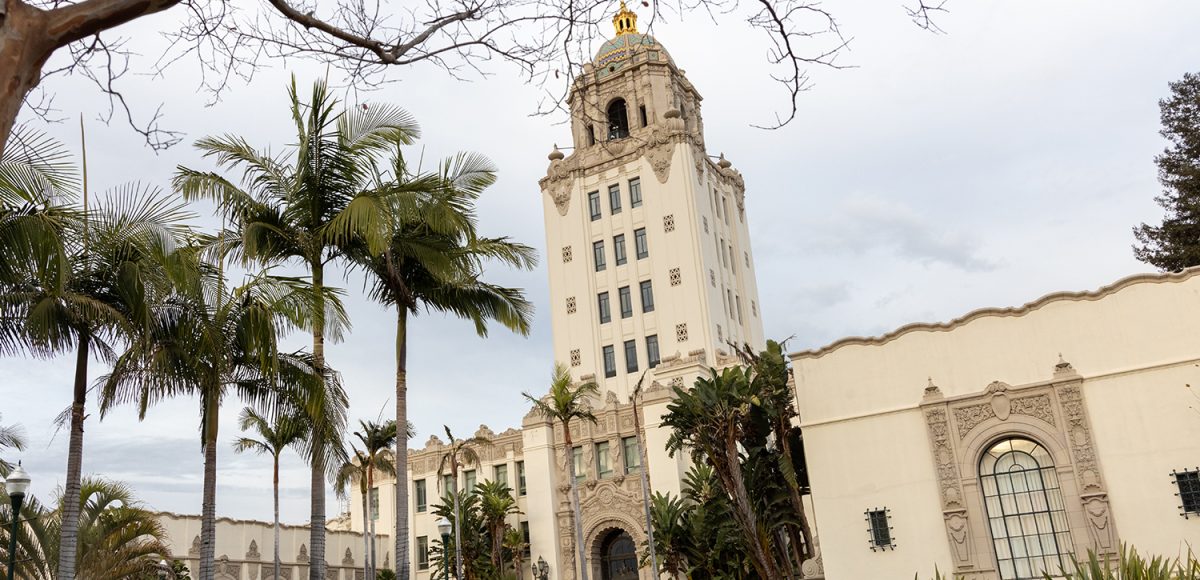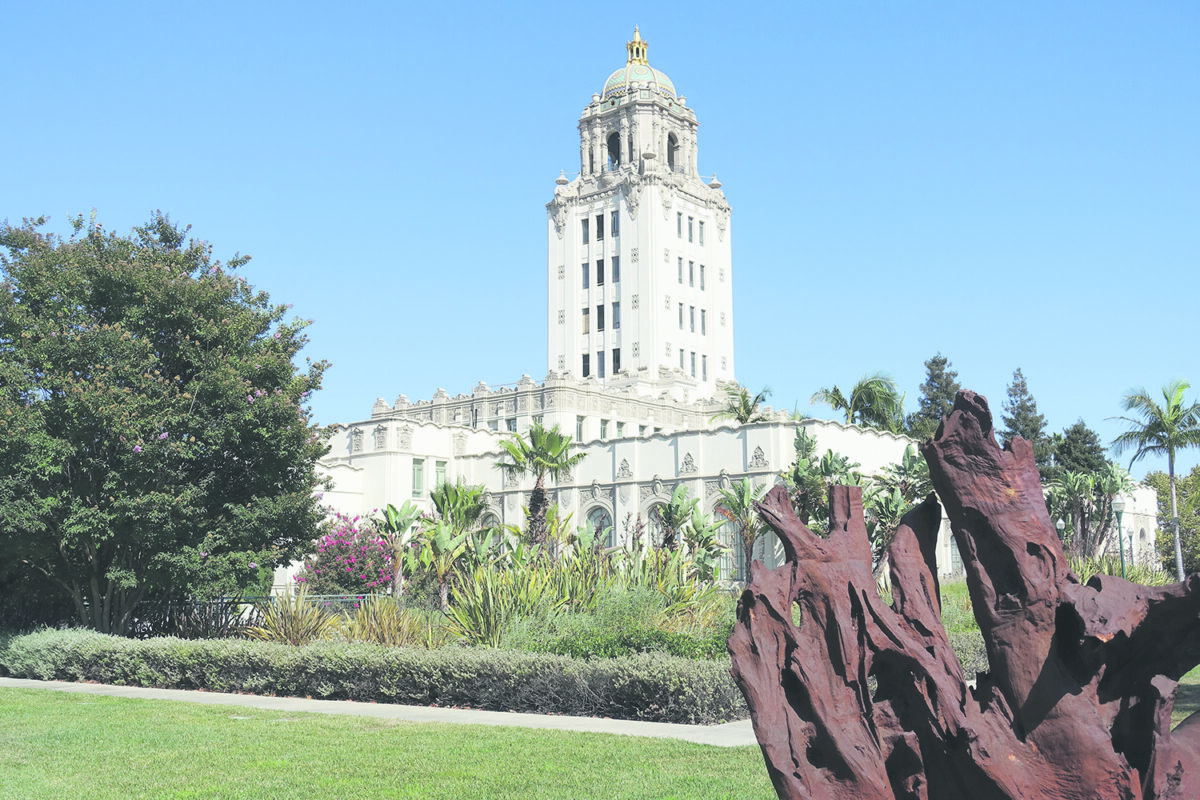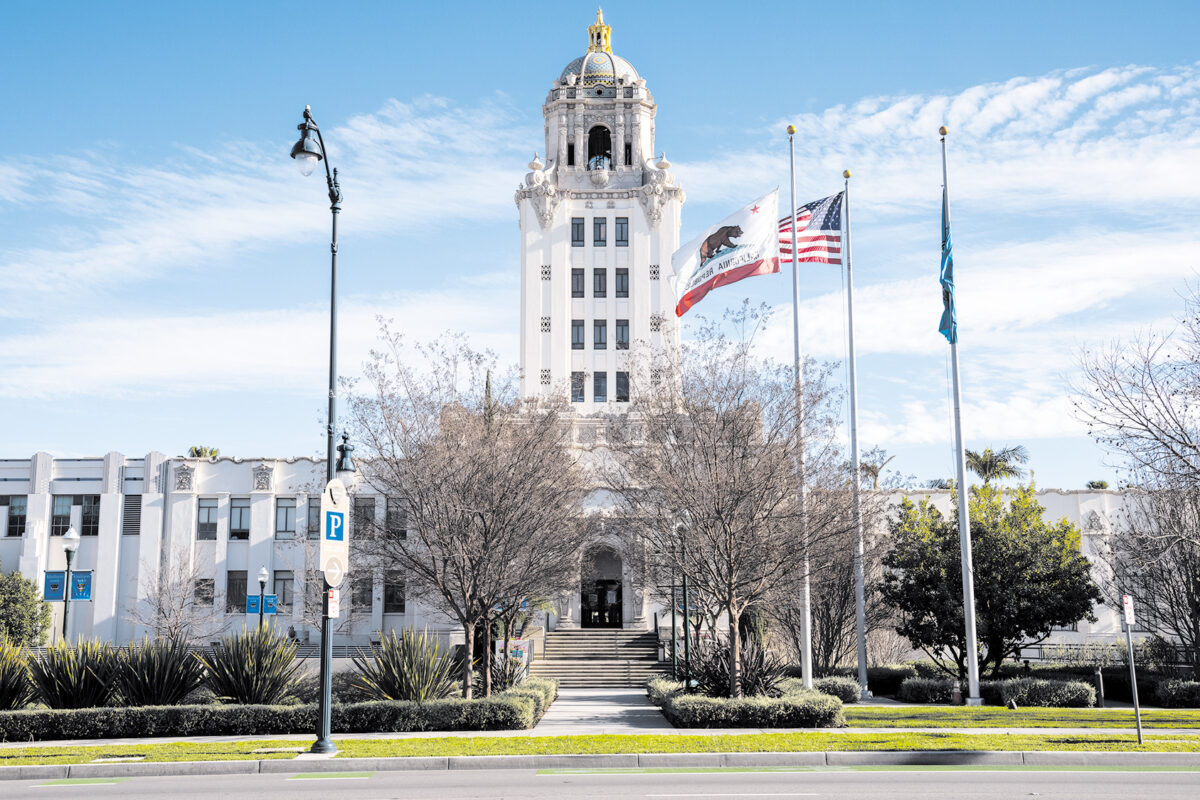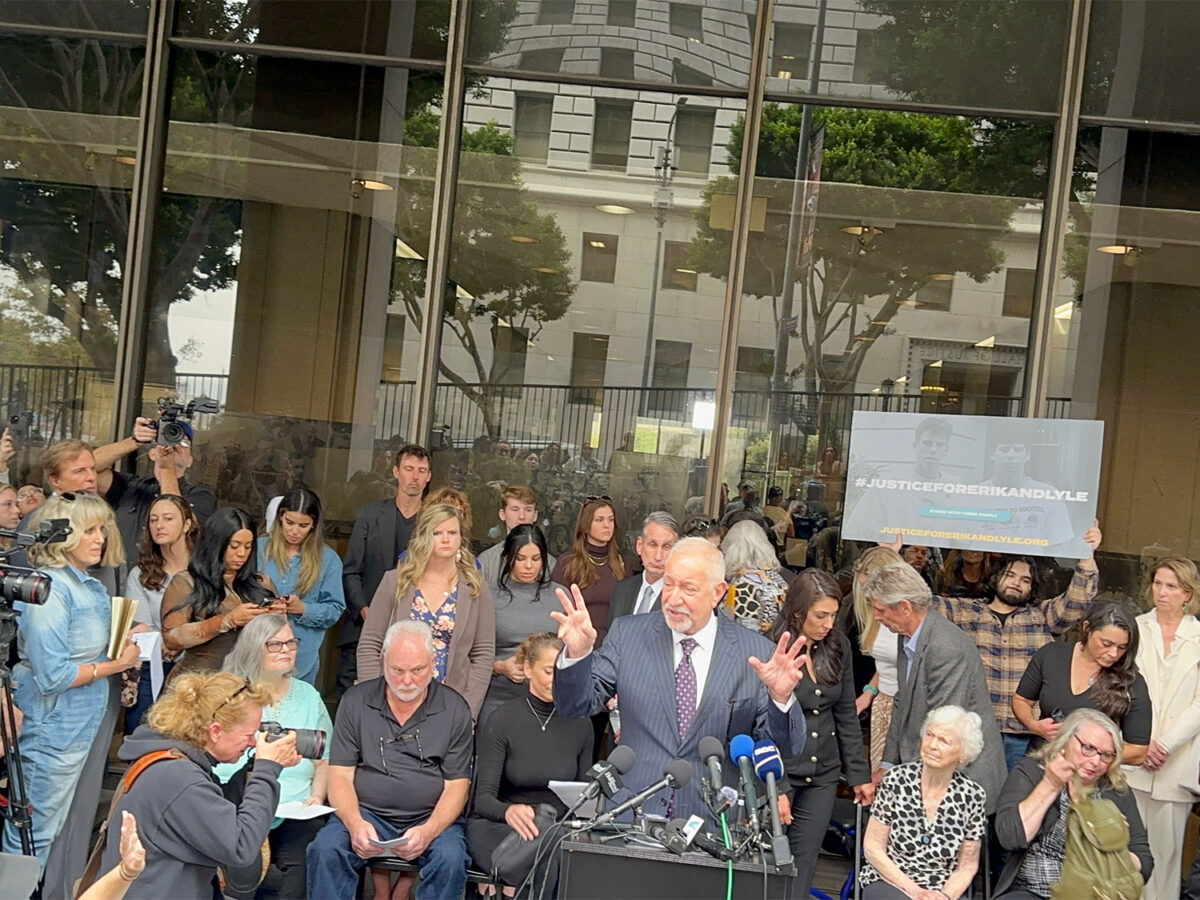In a move described as unprecedented, the Beverly Hills City Council passed a resolution of a vote of no confidence in new Los Angeles County District Attorney George Gascón. Three of the Council’s five members, including Councilmember Lili Bosse, Councilmember Julian Gold, M.D. and Mayor Lester Friedman, argued that Gascón’s progressive policies had made the city less safe and hamstrung law enforcement. The dissenting voters, Councilmember John Mirisch and Vice Mayor Robert Wunderlich, both expressed concerns with the D.A., but had reservations over the outright sanction of a public official as opposed to their policies–a step that none could recall happening before. The move places Beverly Hills in league with the City of Santa Clarita, which passed a no-confidence vote in Gascón on March 9, citing many of the same reasons given by Beverly Hills.
“This is really, for me, a watershed moment,” Mayor Lester Friedman said at the March 16 Study Session. “The criminal element is just taking advantage of the fact that there is no enforcement of the laws that we have on the books.”
Gascón assumed leadership of the largest prosecutorial body in the country and the largest jail system in the world on Dec. 7. His victory over former D.A. Jackie Lacey, once viewed as a long shot, came on the heels of a historically large and diverse outcry for civil rights across the country sparked by the killing of George Floyd by a Minneapolis Police officer. Lacey herself fell within the crosshairs of local activists who accused her of an overly punitive approach with those convicted of crimes and a too gentle approach with law enforcement accused of misconduct.
In the Nov. 3 General Election, Gascón received 54 percent of the vote county-wide. Los Angeles County and Beverly Hills did not see eye to eye, with about the same proportion of residents in Beverly Hills casting their votes for Lacey.
In his inaugural address, Gascón made good on his campaign promises. He issued a series of Special Directives that made sweeping changes to the charging and sentencing policies of the D.A.’s Office. Among the changes, Gascón directed his deputy district attorneys to no longer seek the death penalty and to no longer prosecute juveniles for misdemeanors and low-level felonies.
The City Council took aim at three Special Directives in particular. Under Gascón’s Pretrial Release Policy, his office eliminated cash bail for any misdemeanor, non-serious felony, or non-violent felony offense. Instead, prosecutors will only seek to hold defendants accused of homicide or violent felonies. Judges can still impose bail, but generally defer to prosecutors on the matter.
Then, under Gascón’s new sentencing guidelines, he instructed prosecutors not to charge first time offenders for a variety of nonviolent misdemeanors, including trespass, disturbing the peace, drug possession, and loitering. The policy dictates that prosecutors send defendants into pre-trial diversion programs as opposed to incarceration.
Finally, the Council pointed to Gascón’s move to end the use of sentencing enhancements, a prosecutorial device that adds time to a sentence under certain conditions. Examples include the Three Strikes Law, committing a crime with a weapon, or crimes related to gang activity. Gascón walked back the change slightly on Dec. 15, clarifying that prosecutors could still seek enhancements for hate crimes, child abuse, elder abuse, sexual abuse, human sex trafficking, and financial crimes.
The vote drew a large number of comments from the public, mostly written, with 116 comments expressing support for the vote of no confidence and 21 against the vote. Alex Trantham, a public defender and alumnus of Beverly Hills High School, said she felt “deeply disappointed” in Friedman and Bosse for requesting the vote. “What I see all the time on the ground, people need mental health treatment, people need services, they need money, they need help getting back on their feet after years of our carceral system consistently making sure that these people never are able to get a job, get housing, and reenter society,” she said.
The vast majority of comments backed the council’s move. Given the sheer volume, the points were summarized by a city staff member. Those who wrote in with support for the vote said that Gascón’s policies “are allowing criminals to victimize citizens with little repercussions.” Another comment said that the policies triggered the PTSD of immigrants who fled to Beverly Hills from places of conflict.
According to Mayor Friedman, the changes in policy have created loopholes that criminals have exploited. “We have to take a stand, in my view, that while there are inequities in the system and while there is a need for more mental health opportunities for people who are incarcerated…we cannot allow it to be such that a person can go into a store and shoplift $949-worth and get a citation and have no repercussions because of that. And then they can come back again and do the same thing.”
Notably, Gascón’s new guidelines on declining to prosecute first time misdemeanor offenders does not list petty theft or grand theft, though the memo outlining the policy “does not constitute an exhaustive list.” The memo encourages deputy district attorneys to “to exercise his or her discretion in identifying a charge falling within the spirit of this policy directive.”
Gascón’s sweeping policy shifts have rankled not only those within the DA’s office, but also law enforcement across the county. In the meeting, Gold suggested this frustration extended to the Beverly Hills Police Department (BHPD). “Our Police Chief met with Gascón and there was not a productive meeting,” he said. Bosse echoed Gold’s claim in the March 16 Regular Session, saying, “We had our Police Chief actually meet with Gascón, all in good faith, and our Police Chief even said that it was a very unproductive meeting.”
A spokesperson for the BHPD denied that characterization of the meeting. Acting Captain Max Subin told the Courier that the chief and department staff would meet with the D.A.’s office six months from their first meeting to review crime data.
None of the council members cited specific examples of suspects who reoffended after being released under Gascón’s new policies, nor did BHPD provide any examples when asked by the Courier. Beverly Hills has witnessed a series of high-profile crimes over the last few months, most notably a brazen mid-day robbery and shooting at Il Pastaio.
Gold cited one instance of alleged robbery by a juvenile, though the resolution of a vote of no confidence did not list Gascón’s directive on juvenile prosecution as a “Special Directives of concern to the City.”
“The notion that a 17-year-old can hold up a mother and her 14-year-old daughter in one of our parking lots and be charged with pickpocketing, or the equivalent thereof, should offend every resident of this county. That’s effectively what the L.A. District Attorney has done,” Gold said.
According to Special Directive 20-09, prosecutors will charge youth defendants with the lowest possible violation in a particular incident. In Gold’s example, this would mean charging the suspect with misdemeanor grand theft rather than robbery. If the defendant had a “documented history of violence,” it would raise the charge to felony-level grand theft.
According to the January crime statistics released by the BHPD, the most recent month for which data is available, property crime fell 15 percent (138 to 117) from December 2020 to January 2021, though violent crimes rose 20 percent in that same time frame (10 to 12).
But as Mirisch argued, whichever way the data points, one month is hardly enough time to establish a causal trend–let alone three months. “We need to take a more scientific approach, we need to get more evidence, because if we don’t, I think it feels in certain ways like a knee jerk reaction and it will be used against us,” he said.
Both Mirisch and Wunderlich balked at the apparent novelty of the move. “This notion of a no confidence vote towards elected officials that we have problems with or don’t agree with, I believe it’s unprecedented in the history of our city,” Mirisch said.
Mirisch, however, did agree with the three members of the majority in thinking that Gascón had exceeded his authority as DA. “He’s almost making, in some cases, the law. A prosecutor prosecutes. The prosecutor shouldn’t decide which laws to prosecute or which laws not to prosecute, otherwise it becomes arbitrary,” he said.
Wunderlich, who said that he did not vote for Gascón, worried that the move would stoke political rancor and suggested reframing the discussion around the policies rather than Gascón. He said this is how the Council has operated in the past. “When we didn’t like certain things that were adopted by L.A. County, we didn’t vote no confidence in the Supervisors, we called out the policies that we didn’t like,” Wunderlich opined. “When we don’t like certain things coming out of Sacramento, we call out the policies that we don’t like, we don’t vote no confidence in the individuals.”
But for Bosse, Gascón placed himself at the center of the debate by advancing policies that she views as dangerous to Beverly Hills and its interests. “We saw what happened when we had one incident of crime in our city just two weeks ago and we heard people saying that they never want to come back here again,” Bosse said. “We can’t afford that anymore. We can’t afford to have people in our community not feel safe. And from my perspective, [this vote] is against this particular individual because he is the one that has put these directives in place.”
Editor’s Note:
The Courier conducted an exclusive and extensive interview of Los Angeles District Attorney George Gascón on March 16, the day the Beverly Hills City Council passed the no-confidence resolution. The Courier’s interview delved into the topic of the resolution, as well as the Special Directives cited by the Council. In the interest of fairness, the Courier has chosen to run the Gascón interview in our next issue, after giving city officials the chance to respond to Gascón’s comments. Look for this important story on March 26.







